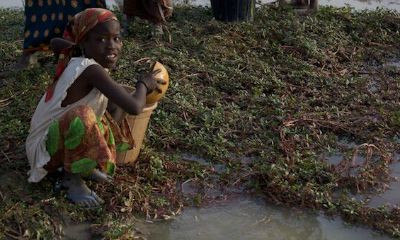By Vanesa Martin
 |
The Sahel region, which includes Niger, is currently in crisis due to a host of interconnected issues affecting the area, including, unstable weather patterns, disease, an inconsistent food supply, along with political unrest and violent conflict. The area has recently been flooded by refugees fleeing from the conflicts in Nigeria and Mali, all while struggling under the continuing threat of the Islamist terrorist group, Boko Haram.
Government officials and military authority figures are under constant pressure, and in the face of such daunting obstacles, it is understandable that the international community sometimes forget that this region is home to many thousands of people with no access to clean water from a reliable source.
Safe water is simultaneously a need and a luxury unknown to many, and the lack of it claims the lives of 1 out of every 7 children in Niger before they turn 5. To put that into a more familiar perspective, let’s consider the fact that our modern day kindergarten classrooms have 30 students or more. At least 4 of these children would become gravely ill and die due to a lack of clean water.
To add to the tragedy, women and girls walk hours every day to obtain this often deadly water. It’s a cruel irony, sacrificing school or rest or work to walk to distant lakes, rivers, and wells for water that is potentially unsafe. These walks are arduous, upward of 4-6 miles, and are embarked on by the women and girls of the family. It is not uncommon for the females who make the trek for water to face sexual assault along the way.
It is for all of these reasons that Wells Bring Hope is so aptly named. The organization’s mission is to bring safe water to those communities who do not have access to it. Along with water comes sanitation, healthier diets, additional crops, and the chance for girls to stop walking and receive an education.
It’s been said that water is the source of life. We look for signs of water when investigating for life on other planets, and we established our earliest civilizations near sources of water. For the people of Niger—especially women and girls—water is a symbol of empowerment, freedom, health, and most of all, hope.
Join us at WBH by volunteering or starting a Water Circle today!


